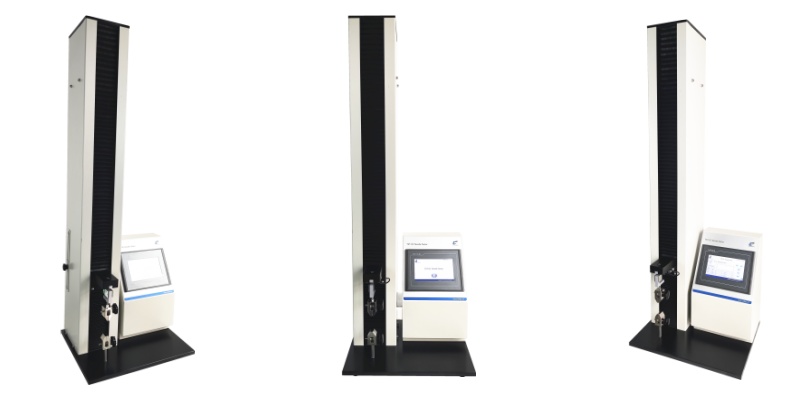VÍTEJTE NA NAŠEM BLOGU
Testovací roztok pro kontrolu kvality bavlněného mopu
Bavlněné mopy jsou nepostradatelnými čisticími nástroji široce používanými v komerčním i obytném prostředí. Zajištění toho, aby tyto mopy splňovaly požadované standardy kvality, je zásadní pro zajištění jejich účinnosti a dlouhé životnosti. Správné testování kvality bavlněných mopů zajišťuje, že mopy dobře fungují a udržují si svou integritu po celou dobu svého životního cyklu.
Prozkoumáme význam testování kontroly kvality bavlněných mopů a zaměříme se na kritické testy, které definují odolnost a výkon bavlněných mopů.
Proč je kontrola kvality bavlněného mopu nezbytná
Pokud jde o čištění, výkon bavlněného mopu může znamenat obrovský rozdíl z hlediska účinnosti a životnosti. Ať už se mop používá v průmyslovém prostředí, nemocnicích nebo domácnostech, jeho schopnost odolat opotřebení, absorbovat tekutiny a odolávat rozbití je prvořadá. Nekvalitní mopy mohou vést k neefektivitě, zvýšeným nákladům na údržbu a nespokojenosti mezi uživateli. Testování kontroly kvality bavlněných mopů proto hraje klíčovou roli při výrobě vysoce výkonných mopů.
Mezi klíčové aspekty testování kontroly kvality bavlněných mopů patří:
- Pevnost v tahu: Toto určuje, jakou sílu může bavlněný mop vydržet, než se roztrhne nebo rozbije.
- Pružnost: Tento test měří, jak dobře se bavlněný mop po natažení vrátí do svého původního tvaru.
- Trvanlivost: Hodnotí, jak dobře mop drží po opakovaném použití a praní.
Testovací roztok pro kontrolu kvality bavlněného mopu
1. Test pevnosti v tahu bavlněného mopu
Testování pevnosti v tahu je zásadní pro zajištění toho, aby bavlněné mopy vydržely fyzickou námahu, kterou snášejí během úklidových prací. Test měří sílu potřebnou k odtržení bavlněných vláken od sebe, dokud se nezlomí. To je životně důležité, protože mopy jsou při použití k drhnutí podlah nebo absorbování tekutin vystaveny značné fyzické námaze. Bavlněný mop s nízkou pevností v tahu se rychle rozpadne, což má za následek špatný výkon a nutnost častější výměny.
K provedení testu pevnosti v tahu výrobci používají specializované zařízení k aplikaci tažné síly na bavlněné prameny, přičemž měří velikost síly potřebné k přetržení materiálu. Pevnost nití je poté vyhodnocena, aby se zajistilo, že splňují požadované normy pro průmyslové použití.
2. Testování elasticity bavlněného mopu
Elasticita označuje schopnost bavlněného mopu vrátit se do původního tvaru po natažení nebo stlačení. Tato vlastnost je zvláště důležitá, protože mopy se během používání často vyždímají a vytahují a musí se vrátit do své původní podoby, aby si zachovaly účinnost.
Testování elasticity zahrnuje natažení vláken mopu a následné uvolnění napětí, aby bylo možné sledovat, jak dobře se mop vrací do původního stavu. Mopy se špatnou elasticitou se nemusí vrátit do svého původního tvaru a časem by se mohly zdeformovat, což snižuje jejich čisticí výkon.
3. Test odolnosti bavlněného mopu
Testování trvanlivosti je navržen tak, aby simuloval podmínky, kterým bude bavlněný mop čelit během své životnosti. To zahrnuje testování jeho výkonu po opakovaném mytí, vystavení různým čisticím chemikáliím a dlouhodobém používání. Test hodnotí, zda vlákna mopu zůstávají neporušená a zachovávají si účinnost čištění i po vystavení drsným podmínkám.
Výrobci obvykle provádějí tyto testy tak, že mop podrobují cyklům mytí, sušení a používání, přičemž sledují jeho schopnost odolat dlouhodobému vystavení stresu. Odolný mop si zachová čisticí schopnost a strukturu i po stovkách použití.
Doporučený produkt pro testování kontroly kvality bavlněných mopů
Ve společnosti Cell Instruments nabízíme pokročilé testovací zařízení navržené pro přesné posouzení pevnosti v tahu, elasticity a trvanlivosti bavlněných mopů. Náš Testery kontroly kvality bavlněného mopu jsou vybaveny přesnými senzory pro měření těchto kritických vlastností. Zařízení poskytuje rychlé a spolehlivé výsledky, které výrobcům umožňují zajistit, aby jejich produkty splňovaly ty nejvyšší průmyslové standardy. Díky přizpůsobitelným možnostem testování můžete testy přizpůsobit tak, aby vyhovovaly vašim specifickým výrobním potřebám.

Zkoušečka tahu TST-01
Přečtěte si o testování kontroly kvality bavlněného mopu, včetně testů pevnosti v tahu, elasticity a trvanlivosti. Zlepšete konzistenci a výkon svých bavlněných mopů.

Cell Instruments
Výrobce a továrna
Připojte se k nám a získejte nejlepší řešení pro laboratorní testování kvality mopu
Často kladené otázky o testování kontroly kvality bavlněných mopů
Testování pevnosti v tahu měří sílu potřebnou k přetržení bavlněných vláken mopu a zajišťuje, že mop vydrží fyzické namáhání během úklidových prací.
Testování elasticity určuje, jak dobře se bavlněný mop po natažení nebo stlačení vrátí do svého původního tvaru, což je zásadní pro udržení jeho čisticího výkonu v průběhu času.
Testování trvanlivosti simuluje dlouhodobé používání bavlněných mopů tím, že je podrobuje opakovanému praní, sušení a chemickému vystavení, aby se zajistilo, že si zachovají svou účinnost a strukturu.
Použití pokročilého testovacího zařízení k posouzení pevnosti v tahu, elasticity a trvanlivosti je nejlepší způsob, jak zajistit konzistentní kontrolu kvality. Přizpůsobitelná testovací řešení mohou pomoci splnit specifické požadavky na kvalitu.
